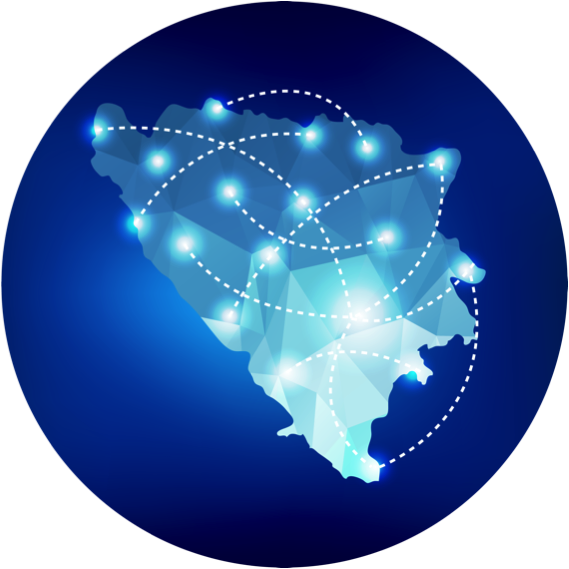Speeches Shim

The operating environment for government-led processes in BiH — including interactions between public officials and potential investors, local businesses, and citizens — is inefficient and insufficiently transparent. Government employees lack the digital tools to improve efficiency and provide public access to information on procurement processes, which in turn would reduce the discretionary power of public officials, a major source of corruption in BiH. Most information and communications technology (ICT) systems deployed in the relevant institutions are outdated and require new software solutions. Interoperability within and among institutions at the state and other levels of government must be improved to ensure that BiH and its citizens benefit from a modern, efficient e-government system, without corruption standing in the way.
USAID ASSISTANCE
Launched in April 2020, USAID’s E-Governance Activity assists BiH in harmonizing its e-governance legislative and regulatory framework with EU directives and international best practices and developing new software to improve the efficiency, accountability, and transparency of government institutions that provide services to businesses and citizens. To further bolster accountability and transparency, the project also works to build the capacity of civil society organizations (CSOs) to monitor and report on public procurement processes, including possible corruption.
IMPLEMENTATION AND EXPECTED RESULTS
Digitalization is an effective tool for fighting public corruption, but to be effective it must be integrated and accessible to both government personnel and the public. To enhance the accountability and transparency of government processes, USAID’s E-Governance project is helping BiH implement a comprehensive set of initiatives and develop new software solutions for targeted government-led processes to improve horizontal and vertical interoperability among different levels of government in BiH (i.e., the state and two entities of Republika Srpska and the Federation of BiH). USAID also works with the public to increase the participation of the private sector and citizens in public proceedings and decision-making processes.
Some of the project activities planned are described below.
- USAID will help local authorities adopt a countrywide e-signature service and support specific agencies to complete the Certifying Authority accreditation process. The Certifying Authority is a trusted entity that issues digital certificates to guarantee that the endorser is who he/she claims to be. The need for e-signature and a more integrated and efficient government system became even more urgent during the COVID-19 pandemic to ensure uninterrupted services to BiH citizens.
- USAID will provide automated processes that have an immediate positive impact on BiH citizens and businesses, first by reducing corruption and second by improving the efficiency of administration in the BiH entities – Republika Srpska (RS) and the Federation of BiH (FBiH) – as follows:
- Government-to-government (G2G) assistance: USAID will develop a new Information Management System for all inspection services in the entities.
- Government-to-business (G2B) assistance: USAID will create a state-of-the-art enterprise system for e-construction permitting in selected municipalities.
- Government-to-citizen (G2C) assistance: USAID will create integrated e-registers of social benefits and beneficiaries.
- USAID will assist the BiH Public Procurement Agency to increase transparency, risk mitigation, and oversight by establishing a centralized ICT procurement application in four pilot cantons of the FBiH. USAID will develop two modules to work with the existing e-procurement system (the Social Witnesses Engagement Module and the Contractor/Vendor Past Performance Report).
- USAID will build the capacity of selected CSOs to improve their monitoring and reporting on government processes, an integral element of this project. USAID trains selected CSOs to analyze and interpret data by pertinent BiH institutions, while improving the technical capacity of the Public Procurement Agency and other governmental institutions to better monitor, evaluate, and report corruption risks involved in procurement processes.

Comment
Make a general inquiry or suggest an improvement.